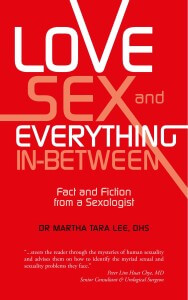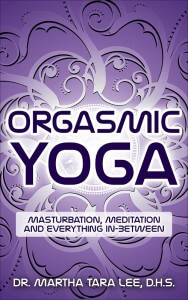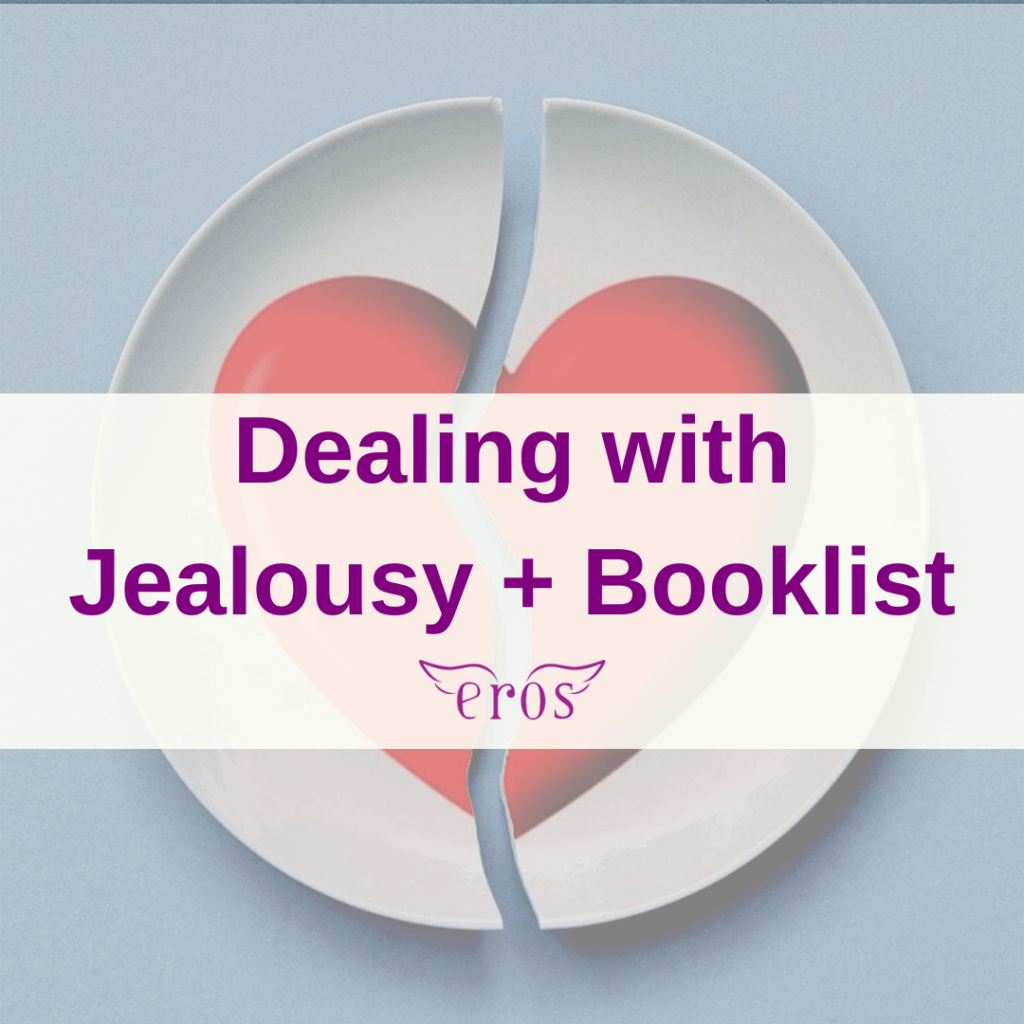 I work with clients who admit they are jealous or possessive people. I also work with people who are navigating opening up their relationship and jealousy comes up.
I work with clients who admit they are jealous or possessive people. I also work with people who are navigating opening up their relationship and jealousy comes up.
In this post, I have collected some strategies on dealing with jealousy + there is a booklist at the end of this blog. Do like, share, comment and recommend your own resources so that I can make this a comprehensive blog to support more people. Thank you!
Strategies to Manage Jealousy
extracted from Elizabeth Sheff’s blog post here
1. The Three D’s
- DISCUSS: Talk about your feelings and boundaries. Sometimes acknowledging how you feel, and expressing yourself can begin to defuse pain. It t gives your partner a chance to provide some reassurance by re-expressing their love and commitment to you.
- DISTRACT: Instead of ruminating on fearful thoughts of what your partner is doing with others, do something fun yourself. Go out on your own date, see a movie with friends, take a bubble bath, or eat your favorite dinner. Feed yourself emotionally by do something fun, meaningful, or fulfilling instead from just stewing on what is happening elsewhere. Often our worst fears do not come true and feeding them does not help.
- DO: Each other. By this, I mean reconnect physically – sex, or at a minimum cuddling and affection, can help soothe, reconnect and reassure.
2. Anxiety Cards
When you are feeling jealous or insecure and have repeated negative thoughts in your mind telling you that you are undesirable, bad in bed, not as good as her partner’s other dates, and all sorts of negative things, consider externalizing the thoughts by writing them on index cards so you can see them in black and white.
Instead of carrying them in your heart, once they are outside of your head, they may seem less powerful when scrawled on the page. Then, you can write countermeasures or defensive strategies on the back, defending yourself against the barrage of disdain and recrimination.
Next, you can give these cards to your partner who can write their own thoughts on the back of the cards, thoughts of how much they love you, what they love about you, and why they want to be with you. Any time you begin to feel those uncomfortable feelings or think those negative thoughts, you can pull out the cards and have some ammunition to use against the painful self-talk. Eventually you might not need to even look at the cards much anymore, because you will come to know the responses and can use them to defend yourself against the jealousy and insecurity.
3. Invest in Yourself
Jealousy is about what is happening with someone else, and takes the locus of attention from yourself to place it in the external world. One of the primary ways to combat this is to refocus on yourself. You’re feeing jealous because you perceive that this person might be better than you are in some aspect. Could this be an area you could work on? Having done what you can, let go of the rest.
When you are feeling jealous, you can reclaim the energy that is flowing out to someone else and instead redirect it to yourself by doing something fun like a hobby you enjoy, learning something new, spending time with dear friends or making new friends, getting some exercise, taking a nap, writing in your journal, or meditating or praying.
4. Face your Fear/ Anger/ Sadness
In her excellent resource The Jealousy Workbook, author and counselor Kathy Labriola explains how jealousy is almost always related to underlying feelings of fear, anger, or sadness that are the true root of the jealousy which is more of a symptom of one of those foundational emotions. Uncovering and facing those feelings can be the best antidote to jealousy and help you deal with the true underlying issues. Labriola encourages her readers to create a “jealousy pie chart” to help identify and master the emotions that make up jealousy.
5. Get Support
Jealousy can be incredibly painful and difficult to face, especially alone. If you are plagued by difficult feelings of jealousy, get some external support in dealing with it. First and foremost, talk to your partner about your feelings. Simply expressing yourself and getting the feelings out of your head and in to some fresh air can change your internal experience significantly. Your partner may also be able to offer some reassurance and healing attention to help calm the fear/anger/sadness and reinforce the good things about your relationship.
Second, get support from friends and family. This can be tricky if they are uncomfortable with your poly relationship and are tempted to use your expression of pain as an opening to say, “See, I told you so! What did you expect?” If you think your usual/non-poly social support sources might react negatively, then seek out poly community resources like the chat to find support from others who understand polyamory.
My Recommended Books:
1. A Therapist’s Guide to Consensual Nonmonogamy: Polyamory, Swinging, and Open Marriage by Consensual nonmonogamy (CNM) means that all partners in a relationship consent to expanded monogamy or polyamory. Clinicians are on the front line in providing support for the estimated millions pioneering these modern relationships. This first available guide for therapists provides answers to prevalent questions: What is the difference between expanded monogamy and polyamory? Is CNM healthy and safe? Why would someone choose the complexities of multiple partners? What about the welfare of children? Through illustrative case studies from research and clinical practice, therapists will learn to assist clients with CNM agreements, jealousy, sex, time, family issues, and much more. A Therapist’s Guide to Consensual Nonmonogamy serves as a step forward toward expanding standard clinical training and helps inform therapists who wish to serve the CNM population. | 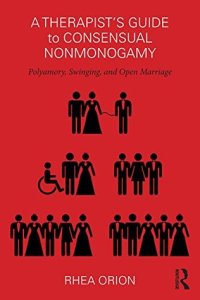 |
2. Into the Open: An alternative love story by Sophie and Jonathan are teenage sweethearts, starting to settle into a comfortable adult life in their new home. But after seven happy years together, Sophie is bored, convinced there must be more to life and determined to find it without losing Jonathan in the process. Join them as they struggle to meet their own and each other’s needs by opening up their relationship. Follow them as they make exciting connections with new people and develop their relationships with friends and family, as well as each other. Will they be able to survive the year? Into the Open is an angst-filled tale of love, sex, and connection, with equal parts joy and heartache. |  |
3. I Am My Beloveds: A Novel by Ben Seidel wasn’t sure how serious they were when he and his wife Shira discussed having an open marriage. But when Shira announces that she is going on a date with Liz, any ambiguity evaporates. Suddenly, every day is new terrain for Ben, navigating between keeping things together with Shira and exploring new partners. And when one of those new partners begins to matter to him more than he ever anticipated, he discovers that the complexities of this new life are only just beginning. Bracingly honest, refreshingly sexy, and deeply empathetic, I AM MY BELOVEDS is the work of a superior storyteller, making real a lifestyle that might be as close as your own bedroom door. | 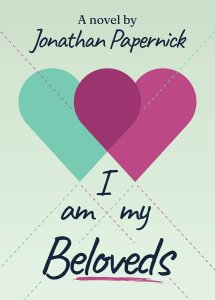 |
| 4. Jealousy Survival Guide: How to feel safe, happy, and secure in an open relationship by Jealousy can have an enormous impact on some people, so it is no surprise that people (especially those who practice consensual non-monogamy) think, talk, and write about it quite a bit. In “Jealousy Survival Guide”, Kitty Chambliss does the homework for you and collects the best tidbits on life and emotions to give you inspiration and provide tools to gain and practice new skills. Combining her own life experience with these pearls of wisdom, Kitty focuses on jealousy in consensually non-monogamous relationships, what it is, how it expresses, and specific ways to manage it. Kitty’s frank discussion of her own struggles with jealousy and focus on specific skills and techniques — without a shred of blame — makes “Jealousy Survival Guide” a delightfully useful read for anyone struggling with jealousy or consensually non-monogamous relationships and polyamory. | 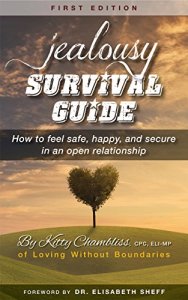 |
| 5. Love and Choice: A Radical Approach to Sex and Relationships by Lucy Fry What, in your relationships, have you chosen? What would you choose, if you felt able? In Love and Choice, therapist and journalist Lucy Fry explains why relationships should start with these simple questions. Most of us are brought up with a blueprint for our most important and intimate relationships. It comes from family, the media, or even the government’s tax policies, and the message is simple: The (gold) standard for a romantic relationship is one that is heterosexual, between two people, and monogamous. | 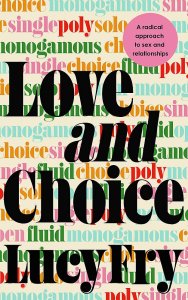 |
| 6. More Than Two: A Practical Guide to Ethical Polyamory (More Than Two Essentials) by Can you love more than one person? Have multiple romantic partners, without jealousy or cheating? Absolutely! Polyamorous people have been paving the way, through trial and painful error. Now the new book More Than Two can help you find your own way. With completely new material and a fresh approach, Franklin Veaux and Eve Rickert wrote More Than Two to expand on and update the themes and ideas in the wildly popular polyamory website morethantwo.com. | 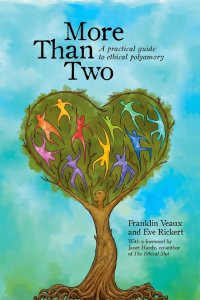 |
7. Open Deeply: A Guide to Building Conscious, Compassionate Open Relationships by Kate Loree Picking up where CNM self-help books like Opening Up, The Ethical Slut, and More Than Two leave off, Open Deeplytackles the most difficult challenges posed by CNM. Therapist Kate Loree—who has practiced non-monogamy since 2003, and who specializes in treating clients who also practice non-monogamy—pulls no punches as she uses vignettes based on her own life, as well as her clients’ experiences, to illustrate the highs, lows, and in-betweens of life as a consensual non-monogamist. Interwoven with these stories are thorough explanations of how attachment theory impacts non-monogamy, how blending cutting-edge, neurobiology-informed grounding skills with effective communication skills will make even the most challenging conversations regarding non-monogamy manageable, and more. The result is a compassionate, attachment-focused template for non-monogamy that will allow readers to avoid pitfalls and find adventure while concurrently building healthy relationships. | 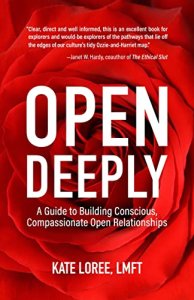 |
8. Polyamory: A Clinical Toolkit for Therapists (and Their Clients) by Your favorite long-term client tells you they want to open up their relationship. Are you ready to help them? This groundbreaking guide to consensual nonmonogamy offers a reading experience that feels like consulting with a trusted advisor. Martha Kauppi equips you with the skills to be a true ally to clients who want to explore polyamory. Learn from the expert who trains experts as she debunks myths and shares the exact tools she uses with her own clients. Flip to any chapter for an understanding of what is possible, where things break down and why, and how to help. You’ll learn how to conceptualize complicated relational dynamics in a way that leads to effective treatment, and how to identify and disrupt maladaptive relational patterns without perpetuating negative cultural bias. A must-read for anyone looking for a framework to simplify the complexities of polyamory. | 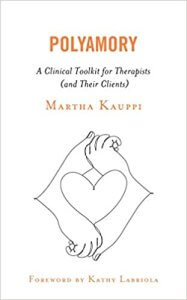 |
| 9. Polyamory and Jealousy: A More Than Two Essentials Guide (More Than Two Essentials) by “How do you deal with jealousy?” It’s the first question many people ask when they hear about polyamory. Tools for dealing with jealous feelings are among the most basic resources in a well-equipped polyamory toolkit. Eve Rickert and Franklin Veaux, authors of the popular polyamory book More Than Two: A Practical Guide to Ethical Polyamory, present Polyamory and Jealousy, part of the More Than Two Essentials series. The essentials take sections from More Than Two, expand on them, and present them in a practical, easy-to-use format that can be listened to in a single sitting. In this book, you will find pragmatic ways to handle feelings of jealousy when they arise. You’ll learn tools for identifying jealousy, strategies for decoding what it means, and hands-on advice for dealing with it before it undermines your relationship. If jealousy is a problem for you or someone you love, this companion to More Than Two offers a path through the wilderness. | 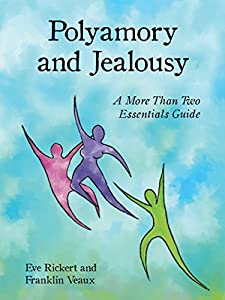 |
10. Polyamory Journal: A Relationship Book: Prompts and Practices for Navigating Non-Monogamy by Kate Kincaid LPC Understand yourself and thrive in non-monogamy Being attuned to yourself allows you to more authentically share yourself with others. Whether you’ve just started considering an open relationship or you’ve been non-monogamous for years, this guided relationship journal can help you explore yourself and your needs as you navigate polyamory. Discover more about yourself and polyamory through the nonjudgmental approach in this guided journal. | 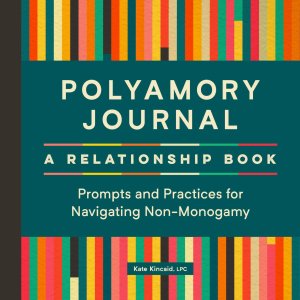 |
| 11. The Jealousy Workbook: Exercises and Insights for Managing Open Relationships by Kathy Labriola A counselor and nurse specializing in polyamorous singles, couples and groupings, Kathy Labriola has spent many years helping people to understand and manage their jealousy. This book is a compendium of the techniques and exercises she has developed, as well as tips and insights from the polyamory community’s top educators, therapists and authors. These accessible, simple techniques are designed to be easily implemented in the event of an intense jealousy crisis. They are even more useful if undertaken over a period of time before a jealousy crisis happens, to build a skill set that will be at hand to help managing jealousy when and if it does occur. | 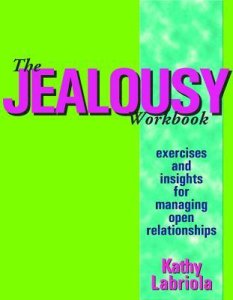 |
References:
- Sheff Ph.D., CSE, E. (2016, February 22). Confronting Jealousy. Psychology Today. https://www.psychologytoday.com/us/blog/the-polyamorists-next-door/201602/confronting-jealousy
- Sheff Ph.D., CSE, E. (2016, February 26). Five Strategies to Manage Jealousy. Psychology Today. https://www.psychologytoday.com/us/blog/the-polyamorists-next-door/201602/five-strategies-manage-jealousy
Get relationship and sexuality support here!
About Dr. Martha Tara Lee
 Surrounded by friends who were sexually inhibited and struck by dire lack of positive conversations around sex and sexuality in Singapore, Dr. Martha Tara Lee set out to make a positive difference in embarking on her doctorate in human sexuality before launching Eros Coaching in 2009. Today, she remains dedicated to working with individuals and couples who wish to lead self-actualised and pleasure-filled lives.
Surrounded by friends who were sexually inhibited and struck by dire lack of positive conversations around sex and sexuality in Singapore, Dr. Martha Tara Lee set out to make a positive difference in embarking on her doctorate in human sexuality before launching Eros Coaching in 2009. Today, she remains dedicated to working with individuals and couples who wish to lead self-actualised and pleasure-filled lives.
She also holds certificates in counselling, coaching and sex therapy, and her fourth degree – a Masters in Counselling in May 2018. In practice since 2009, she is the only certified sexuality educator and certified sexuality educator supervisor by the American Association of Sexuality Educators, Counselors and Therapists (AASECT) in Singapore.
Often cited in the media, Dr. Lee is the appointed Clinical Sexologist for Singapore Cancer Society. She was recognised as one of ‘Top 50 Inspiring Women Under 40′ by Her World in July 2010, and one of ‘Top 100 Inspiring Women’ by CozyCot in March 2011. She has published four books: Love, Sex and Everything In-Between, Orgasmic Yoga, From Princess to Queen and {Un}Inhibited.
Martha works with individuals and couples in private coaching sessions, and conducts her own workshops. She takes prides in making sure all her workshops are also fun, educational, and sex-positive. This comes easily to her because even though she is extremely dedicated and serious about her work, she fundamentally believes that sex is meant to be fun, wonderful, amazing and sacred. As such, this serious light-heartedness has shone through again and again. For her full profile, click here. Email her here.

